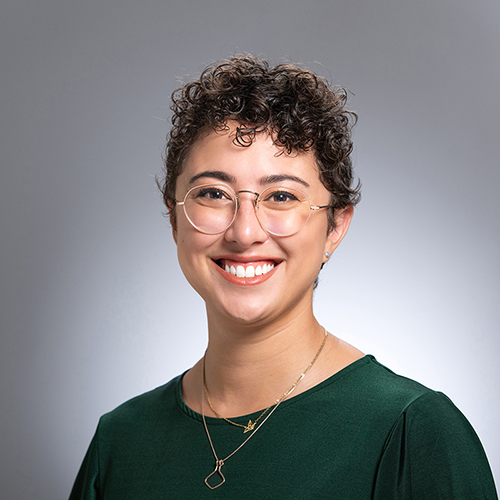 Kirsten Schoonover, Ph.D., has been approved for a 2023 NARSAD Young Investigator Grant for her study, "Zinc-Mediated Hypoactivity Of Layer 3 Pyramidal Neurons In Postmortem Schizophrenia Tissue: Implications For Working Memory."
Kirsten Schoonover, Ph.D., has been approved for a 2023 NARSAD Young Investigator Grant for her study, "Zinc-Mediated Hypoactivity Of Layer 3 Pyramidal Neurons In Postmortem Schizophrenia Tissue: Implications For Working Memory."
This study explores the overlooked cognitive challenges faced by individuals with schizophrenia, particularly pertaining to working memory.
These cognitive deficits impact an individual's overall quality of life, highlighting the importance of further research to develop more effective treatments. One promising avenue of exploration involves the role of zinc, an essential trace metal.
"Zinc has the capability to regulate the communication between cells thought to be the foundation of working memory function,” says Schoonover. “My research is dedicated to unraveling how zinc influences these communication points, known as synapses, and assessing zinc's significance based on different cell types."
The Heersink communications team sat with Schoonover to learn more about her research and the critical nature of addressing untreated cognitive impairments in schizophrenia.
Q: What inspired your pursuit of this particular research topic, and what are the primary objectives of your project?
My interest in this research topic began during my graduate studies. I was drawn to the role of trace metals in the brain, elements essential for daily functioning yet surprisingly underexplored in the human brain.
The main objectives of my project revolve around using increasingly advanced levels of microscopic resolution to investigate the levels of zinc within the primary excitatory neurons and the proteins responsible for transporting zinc within cells.
Additionally, I aim to explore the connections these neurons establish with other cellular types, all with the goal of unraveling the significance of zinc in the brain's intricate processes.
Q: Could you provide insights into how the NARSAD Young Investigator Grant will be utilized to support your research?
Research can be quite expensive, and the grant funding is invaluable. We plan to allocate the grant funds toward acquiring a new camera for our electron microscope. This high-tech equipment is vital for addressing the specific research questions we've laid out in the grant proposal.
Q: Do you anticipate your research could lead to further studies or applications beyond the grant period?
One of the exciting facets of research is its ability to generate new questions and inspire additional explorations. This project is no exception. I eagerly anticipate the next steps and look forward to finding innovative ways to contribute to the scientific field in the future.